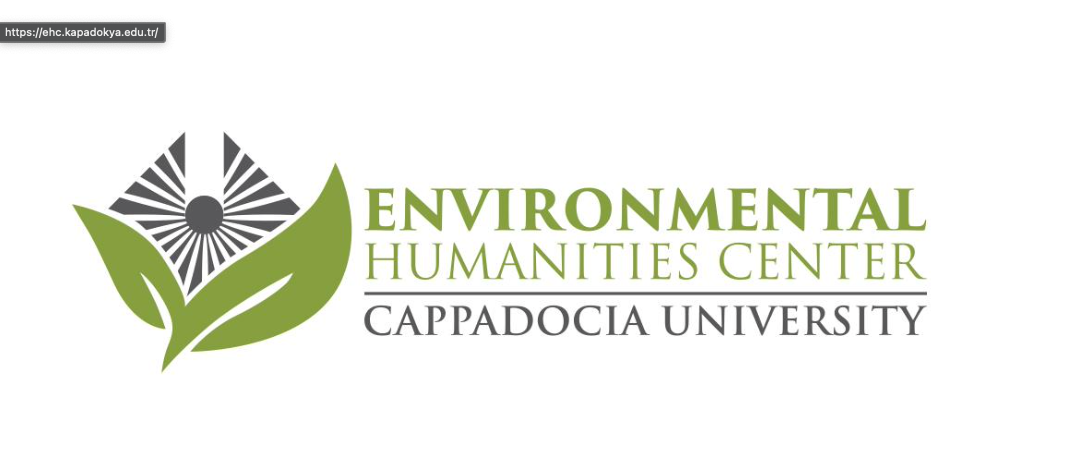
11 Nov CFP: Second International Environmental Humanities Conference (Turkey, May 16-18, 2022)
Call for Papers
Second International Environmental Humanities Conference: Critical Animal and Plant Studies
Cappadocia University (Mustafapaşa Campus, 50420 Ürgüp/Nevşehir, Turkey)
May 16-18, 2022
Confirmed Keynote Speakers:
- Paola Cavalieri (Etica & Animali; The Helsinki Group, www.cetaceanrights.org) (Online)
- Monica Gagliano (The University of Western Australia) (In-person)
- Douglas Vakoch (METI International) (In-person)
There have been many international conferences focusing either on critical animal studies or on plant studies exclusively in the fields of environmental humanities and ecocriticism. So far, no conference has sought to place them side by side to discuss more-often-than-not their interrelated theoretical and praxis- based research. The second international conference organized by the Environmental Humanities Center at Cappadocia University, which also hosts Ecocene: Cappadocia Journal of Environmental Humanities, aims to bring them together to open an exciting platform for scholars from both fields to discuss these research areas’ correlations and/or differences. While scientific and humanities-based research on animals is more widespread than on plants, which have remained in dimness until recently, there is now a growing body of studies focusing on the crucial role of vegetal life that is vibrant, generative, and agentic. Plants, after all, are fundamental to all biotic life, and they have the power to “alter the geochemical cycles of the planet” (Gagliano et al. 2017). Moreover, both critical animal studies and plant studies scholars agree that human-animal and human-plant relations are in a state of crisis with devastating environmental consequences for all nonhuman species and human societies, as well as for the changing ecosystems. During this conference we aim at discussing how reflecting on animal and vegetal life in their dynamic relations to the terrestrial and aquatic environments can enable new modes of thinking in a more cohesive, ecological approach to vegetal, animal, and human life. Plants, for example, are as communicative (such as electrical signaling, chemical cues, light wavelengths, changing colors) as nonhuman animals in their relations with biotic and abiotic environments. One of the questions here would be: How can we find ways to understand/read their language about the ongoing ecological degradation? Another question that we encourage participants to consider is: What are the life-sustaining or life-threatening relations between plants and animals, and plants, animals, and humans?
In this context, the conference provides an interdisciplinary platform for scholars to discuss the most recent theories, topics, concerns, and challenges encountered in the fields of Critical Animal Studies and Plant Studies. For example, the question of how we can develop a truly non-exploitative relationship to nonhuman species that sustain our ecosystems, is one of the topics we will be discussing. The conference, then, focuses on imagining futures for human-nonhuman relationalities in a world that is under so much stress. We invite individual papers and panel proposals on the following suggested topics:
- Animals and plants in biosemiotics
- Animals and plants in disability studies
- Animals and plants in feminist ecocriticism
- Animals and plants in gender studies
- Animals and plants in postcolonial studies
- Animal and vegetal life in urban spaces
- Animal centers
- Animal liberation and ethical issues
- Animals in literature and arts
- Animals, plants, and environmental transformations
- Aquatic life in massively polluted seas
- Climate change and displaced animals and plants
- Human-animal relations in terrestrial and aquatic environments
- Invasive animals
- Invasive plants
- The language of animals and plants
- Microscopic dangers in animal and plant studies
- Plant and animal migrations
- Plants in literature and arts
- The role of plants and animals in human health
- Veganism and plant ethics
The conference will be in the hybrid format. Both in-person and virtual (Zoom) presentations will be live-streamed on Cappadocia University’s YouTube channel.
The official language of the conference is English. Interested scholars are kindly asked to submit abstracts of no more than 200 words, together with a short bio note (100 words), for 15-minute presentations. When submitting your abstract, please indicate the format of presentation you prefer (in-person or virtual) under the title of your abstract, as well as your institutional affiliation.
Please send proposals to conference e-mail address: cappadocia.ehconference2022@gmail.com
Conference Registration Fee: None
Important Dates
Deadline for abstract and short bio submission: Tuesday, February 1, 2022, 11:59 pm (GMT +3).
Peer-review accept/reject decision notification: Tuesday, March 1, 2022, 11:59 pm (GMT +3).
Draft program announcement: Tuesday, March 15, 2022, 11:59 pm (GMT +3).
Final program announcement: Tuesday, March 29, 2022, 11:59 pm (GMT +3).
Conference Location: The in-person sessions of the conference will take place at Mustafapaşa Campus, Cappadocia University, Nevşehir, Turkey.
Travel: Mustafapaşa Campus is conveniently accessed through two airports, Kayseri Airport and Nevşehir Kapadokya Airport, both of which are within 1-hour travelling distance (by taxi or shuttle service).
Bus service to Ürgüp and Nevşehir central bus stations is also available from all major cities in Turkey.
Accommodation: A list of the recommended accommodation options (hotels that Cappadocia University works with for similar events) will be announced by Tuesday, March 1, 2022, 11:59 pm (GMT +3).
Meals: Lunch will be served at university canteen on May 16 thru 18.
Cappadocia Excursion (Optional): Subject to advance registration and extra payment (deadline and cost to be announced), one-day sightseeing excursion to the attractions in the vicinity of Mustafapaşa Campus will be organized as part of the conference social program.
For details of the conference, please follow the updates at Environmental Humanities Center website: https://ehc.kapadokya.edu.tr/international-conferences
For information about Ecocene, please visit the journal website: https://ecocene.kapadokya.edu.tr
Covid-19 “Safe Campus” Certification: Cappadocia University, by fulfilling the requirements of the Certification Program for the Development of Healthy and Clean Environments, was entitled to receive “Safe Campus Certificate in the Context of the Global Epidemic” awarded the Turkish Standards Institute (TSE). For details of the “Safe Campus” scheme please visit the (Turkish) website: https://blog.kapadokya.edu.tr/evde-hayat-var/
We look forward to welcoming you to our conference in May 2022!
Serpil Oppermann & Sinan Akıllı
On behalf of the Organizing Committee



Sorry, the comment form is closed at this time.